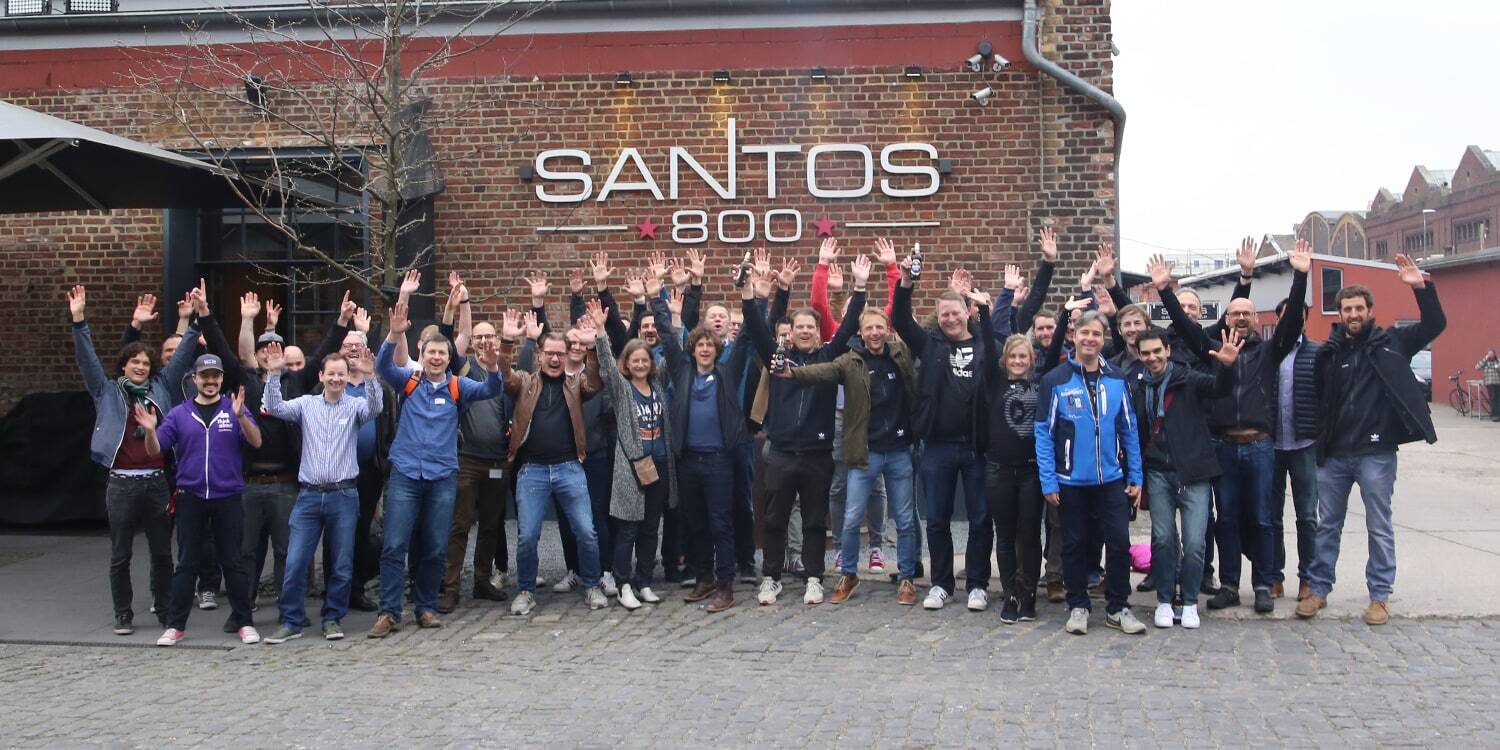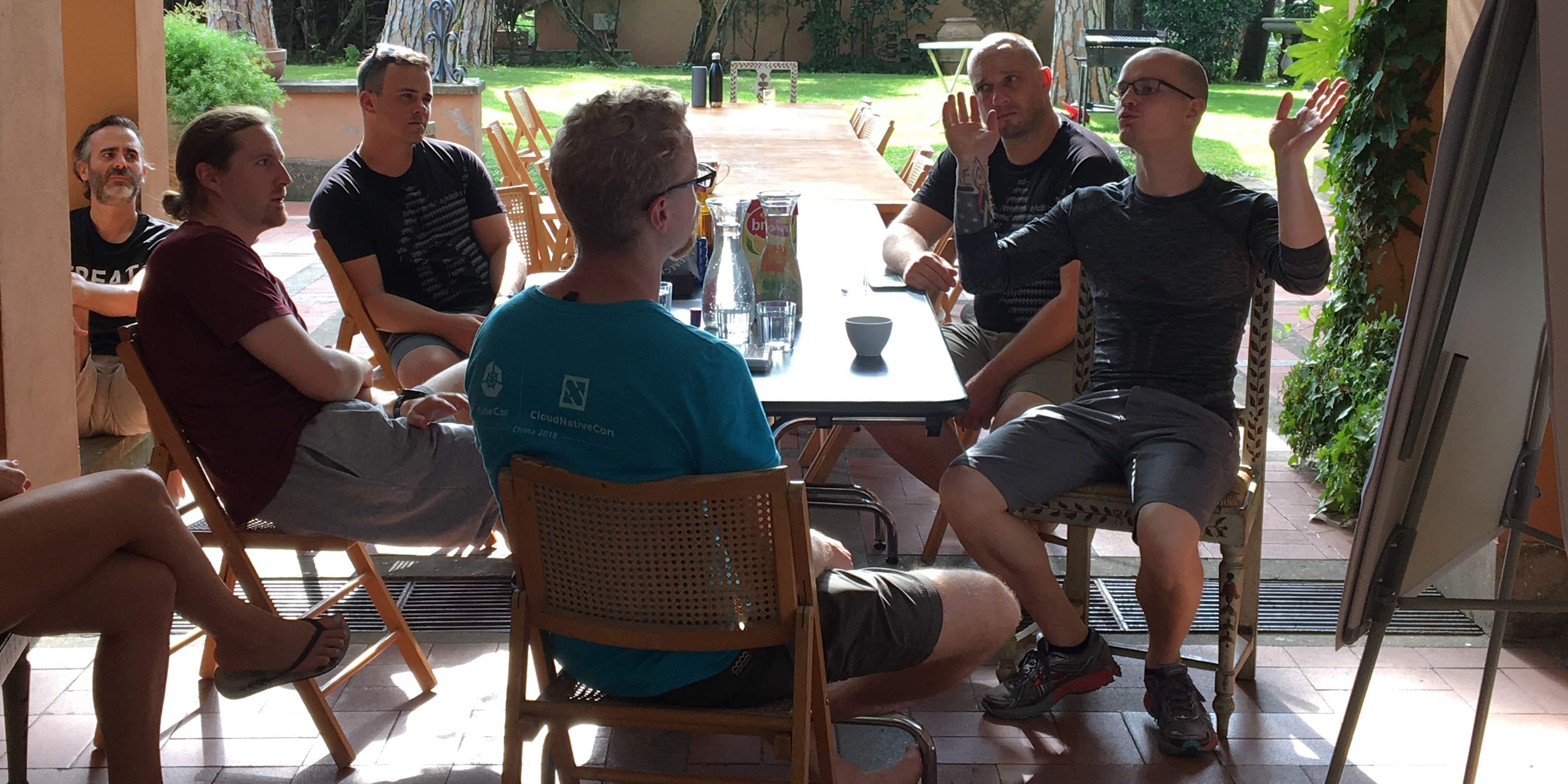Our Way of Working with Customers and Partners
by Oliver Thylmann on Sep 29, 2020

In other words: Why Knowledge Sharing is Important Part II
To recap my previous article: if knowledge is important, then the creation of that knowledge is what adds value and that again means you need to optimize for human interaction and adapt processes accordingly. This obviously doesn’t just apply to our internal interactions, but also interactions with our customers and partners.
Communities of Practice
Palanyi said: “We know more than we can tell.” This means that rather than simply writing things down, we need to interact with each other to learn and build knowledge.
This is where the system of Communities of Practice (CoP), as a communal learning system, comes from. A CoP would be a group of people with a shared craft or a shared goal in the more liberal interpretation. If you want to know more, look up 'Situated Learning', as it explains in large detail the systems that are relevant for developing professional skills.
If we agree that CoP and something like a master-and-apprentice system are important for knowledge distribution and creation, then we need to make sure that we tailor work around getting knowledge shared between people in those settings. With that, we need to accept that it might never move to the company, meaning that it will always only exist in the space between people interacting.
The way it possibly can be transferred to the company is through people expressing sentiments like; “this is the way things are done around here” in personal interactions. This isn't about dictating a certain opinion or process but rather explaining a way of working that is more around cultural development than documentation. Management can possibly see knowledge and repackage it as best practice and share stories.
An example is that we can fully explain why we believe upgrading clusters regularly is important, but no explanation beats experiencing a failure to upgrade first hand, within a team that has a real application running into real problems due to outdated components on the clusters.
The value of knowledge is beyond you
We've established that freely sharing knowledge is important and that we need to allow for diverse interactions for it to really flourish. You need to keep an open mind, interact with a diverse group of people, allow for discovery and sharing, all this together will allow you to create new information, to create new knowledge.
The interesting mix is that knowledge does not decrease with use, but has a short half-life. You need to focus on using your knowledge as best you can. Read that again. This is important! Existing knowledge that you share doesn't lose value for you; it might only decrease the difference between you and the other person you've imparted your knowledge onto. With the right setup, that knowledge sharing will also add to more information for you and allow you to create new knowledge.
Even more wicked, knowledge value is deemed highest at the place of the highest need, which certainly is not with yourself.
If you think about the open-source world, this is exactly what is at play. Everything that can be written down, the code and documentation, is theoretically free, but the interaction with the code at the edge, at the point of value creation, possibly creates new learnings, more knowledge, that is then fed back into code. Still, the people that are the real experts in the system are really expensive because their knowledge cannot be written down so easily.
The company now goes beyond borders
You are in a network with our colleagues, friends, customers, partners, and extended families, with some of them working at the same company as you. But all these parts need to work together for the whole to be successful. The size of companies is actually shrinking and the network you work in is growing, as things become more complex and these companies or groups of people with a shared interest, focus on specific things. In the case of Giant Swarm, it makes no sense for us to build shoes, a mobile phone network, and IoT platforms, the same as it makes no sense for our customers to become experts in running container orchestration platforms. With transaction costs, and communication costs and barriers between companies getting lower and lower, you will see this happening more and more but in a real partnership setting instead of an outsourcing-like construct.
Companies need to focus on the part of the value chain that makes them different, that makes them who they are. Our customers decided that Kubernetes management, the same as building your own cloud, is clearly not their reason for being. And make no mistake, running Kubernetes is like building your own AWS.
We need to understand networks a bit better, and for that, let's just take McKiernan's (1992) 7 basic premises of network theory:
- Networks relate organizations to others
- Dependence on each other is high
- Resources are firm unique (mostly)
- Networks are in a flux
- Strengths depend on links (remember: knowledge is valued highest at the point of highest need which might not be with you)
- Information exchange is key (transparency and no-blame culture are key)
- Product and service characteristics influence bonding (we build our product with our customers)
The important thing is that you need to remember these characteristics when you think about the future of your company.
The same is true for our customers. All of them have hired bright minds for their cause, and we can always learn from them. Our Giant Summit events are built to facilitate that sharing and create deeper bonds.
Conclusion
Now let's go full circle from the last article to this point. Firstly, we cannot write everything down, and secondly, to succeed, we need to allow for constant and diverse interactions. These interactions need communities of practice and need to extend beyond your own company, in a network setting that is always in flux, with constant sharing of knowledge as well as creation. We need to remember all of the above when we design our processes.
We clamor for simplicity that's not there. We long for clear and explicit knowledge, which in many cases is nothing but a pipe dream. Our knowledge is most valuable with our customers and partners and we need to build networks to increase the knowledge pool available to our customers, thus creating a viral loop of knowledge inception in the process. You win by enabling your company to automatically flourish in the future, based on the structure it has now and how it is able to adapt.
And oh boy, am I looking forward to the future of this company.
You May Also Like
These Related Stories

Why Knowledge Sharing is Important
We recently had an internal discussion about documentation — too much, too little, not needed, crucial — back and forth, and back again. It's a hard s …

How Giant Swarm Enables a New Workflow
By now we all know that Amazon AWS changed computing forever and it actually started as an internal service. The reason for the existence of AWS is pr …

Giant Swarm vs OpenShift
At Giant Swarm, we’ve often been asked to compare our infrastructure with that of Red Hat OpenShift. We’d like to shed some light on this subject and …
